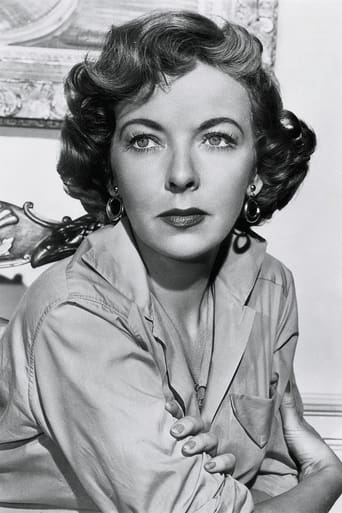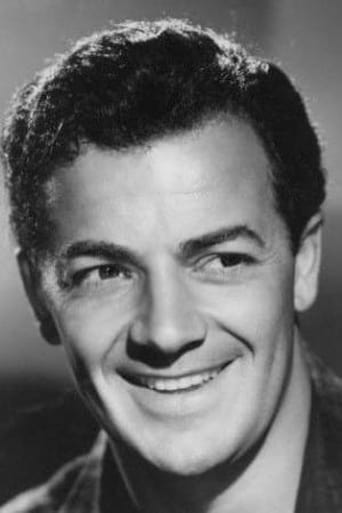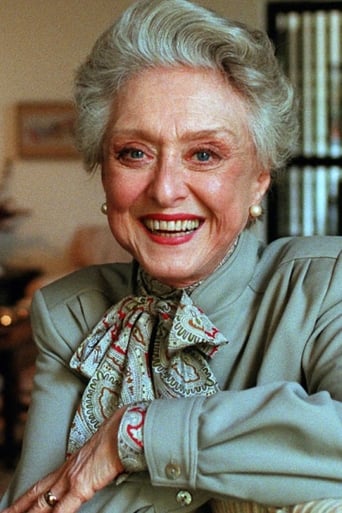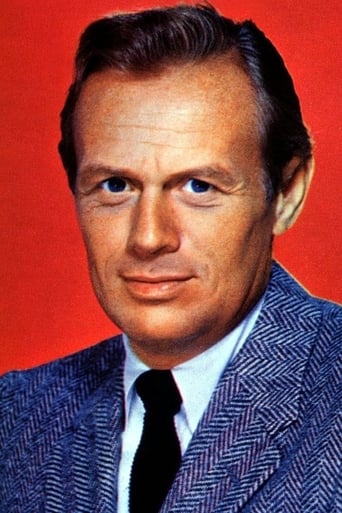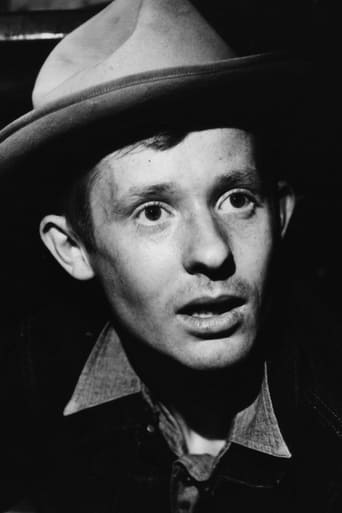Kattiera Nana
I think this is a new genre that they're all sort of working their way through it and haven't got all the kinks worked out yet but it's a genre that works for me.
Daninger
very weak, unfortunately
Beystiman
It's fun, it's light, [but] it has a hard time when its tries to get heavy.
Borgarkeri
A bit overrated, but still an amazing film
Spikeopath
Road House is directed by Jean Negulesco and adapted to screenplay by Edward Chodorov from a story by Margaret Gruen and Oscar Saul. It stars Ida Lupino, Cornel Wilde, Celeste Holm and Richard Widmark. Music is by Cyril J. Mockridge and cinematography by Joseph LaShelle.When Jefty Robbins (Widmark) brings new torch singer Lily Stevens (Lupino) to the Road House he owns, it causes friction between Jefty and his boyhood pal Pete Morgan (Wilde). So much so it will have dire consequences for some...I guess this is a moose trap all around.Love triangle noir that comes away from the city and out to the sticks, Road House rises above the clichéd storyline to become engrossing entertainment. Narrative stays straight and true, two pals from way back are divided by the appearance of a woman on the scene, it's going to end bad for someone and the audience knows this, and they know who it's going to be, which sadly nullifies the mystery element. But the characters are well drawn and well performed, with Negulesco (The Mask of Dimitrios) able to paper over the cracks without using pointless filler. The big rewards here come in Widmark's coiled spring performance and the script which is full of acid tongued barbs and sardonic observations.The backdrop is most unusual in terms of genre conventions, the Road House of the title is an out of the way bar with a bowling alley out in back country Americana. This is a bar that reeks of moose hunting and forests, it's all very rustic and rural, with the fashions adorned by the principals reflecting their surroundings, but LaShelle's photography keeps us in the noir frame of mind with classic isolated lighting. There's also some musical numbers performed by Lupino, she has a husky voice that while it isn't exactly musical grace, it conjures up a feeling of too many cigarettes and bourbon, with a sadness befitting the mood of the songs, particularly where the standout "One For My Baby (And One More For The Road)" is concerned.Unusual at times and not as "drastic" as the source story hints it could have been, but very much one for the noir faithful to enjoy. 7/10
Alex da Silva
Road House manager Pete (Cornell Wilde) falls in love with singer Lily (Ida Lupino) brought to entertain customers by Road House owner Jefty (Richard Widmark). However, Jefty has his own interest in Lily and intends to marry her. While Jefty is away getting a marriage license, Pete and Lily become involved and decide to go away together. Well, once Jefty discovers this, he is not happy and plans revenge against the pair and it's a good revenge, which leaves the pair only one real choice..........they make a run for it.......Throughout the film, I felt a little sorry for Susie (Celeste Holm) as she is made out to be Pete's girlfriend but her feelings seem to be papered over. She gets a bum deal in this film. She even covers for her boyfriend's philandering with Lily once Jefty returns to claim Lily for his wife. There is some snappy dialogue between Susie and Lily and Lily and Pete and the most memorable line for me is delivered by Jefty on his entrance. He greets pal Pete with a cheeky delivery of the line "Hey, you son of a gun" on meeting Pete and Lily in the Road House office.The cast do well with Richard Widmark being my favourite, despite being 4th billed. Ida Lupino sings a few songs with her gravelly voice and we have been pre-warned that she may not be much good at singing, so the outcome is not too bad. Overall, it's an interesting and enjoyable film with memorable scenes including every time Widmark appears and an interesting sparring between Lupino and Wilde while he is teaching her to bowl. You don't need to see a bedroom but you get the gist....
secondtake
Road House (1948)Road House is in some ways a straight up romance with noir stylizing. The setting is great, out in some isolated and spectacular club/bar of a type once known as a roadhouse (often out of town to avoid local laws about drinking and cavorting). The core is that the troubled and cocky Jefty, played by the inimitable Richard Widmark, wants the troubled Lily, played by a tough Ida Lupino. Widmark as the roadhouse owner is pure Widmark, so that even when he's charming he's scary, and when he's not so charming he becomes demonic. This repels Lupino, who though hard edged is decent deep down, and she falls for the nice guy, played by Cornel Wilde, who is a sweetheart with an inability to stand up for himself. This gets him, and everyone else, into trouble. The steady, downward drone of this movie from a just barely tense introduction as Lily comes to town to be the new entertainment to a love conflict and a frame up is subtle and effective. Don't look for fireworks--it's all smoke until the very end. A full hour passes before you reach the movie's one major plot twist (the bizarre parole conditions announced in the courtroom), and then the gun has finally been cocked. Now all that we wonder about is how it will go off. And Lupino. There is no one in Hollywood quite like her, one of the best women for making bitter arrogance smart and snappy. Her husky-voiced singing is far more provocative than awful, and perfect for this roadhouse in some unlikely mountain town fifteen miles from Canada. Not only is Lupino brilliant with her lines, she has brilliant lines to deliver, almost as though she invented them, they fit so well. The fourth main character, the "second woman" played by Celeste Holm (the beguiling voice-over in Letter to Three Wives), seems to have a smaller role, but she's ultimately the sensible and good gal, not as sexed up and headturning as Lupino's Lily, but steady and practical and a key to everyone's salvation in the end. The camera-work starts out as pretty straight 1940s greatness (aided by an astonishing series of period sets), with Joseph LaShelle as cinematographer building up the drama through the last half hour to some searing, dramatic face shots. The final scenes in the woods presage the similar foggy ending to Gun Crazy, which has more of a cult following (and which has visual innovations this one doesn't), and these scenes are worth the ride by themselves. Director Jean Negulesco has only a few features of note to his credit, but Road House, along with How to Marry a Millionaire and Johnny Belinda, makes a great case for his ability.It's easy to fault the film for some small things (Pete seems inexplicably powerless to fight the frameup) and even for larger ones (the romance that holds it together isn't all that convincing), but the moods and sets and lines are all great stuff. The plot has some gratuitous moments (including an exhibitionist Lupino) but taken another way they emphasize her difference from the others, her insouciance and her confidence. It's curious, and maybe defining, that the natural match between the troubled characters, the Widmark and Lupino leads, is rejected, but then Lily's shift to Pete ought to catch fire.In a way, the film's theme, of a man being overwhelmed by his wanting and expecting a woman, is defined best in Lily's matter of fact line, "Doesn't it enter a man's head that a girl can do without him?" Not usually.
RanchoTuVu
Richard Widmark gives a superior performance in this film as an unstable owner of a road house that's located in a small community close to the Canadian border. He inherited the business from his father. His lifelong friend, played by Cornel Wilde, works for him managing the business. The two are equals until Ida Lupino shows up as an out of town singer and pianist who's hired by Widmark to provide entertainment. Her presence is what causes the extreme strain that breaks Widmark's and Wilde's friendship for good. The settings are unique, with a taut finale out in the woods, and as well a courtroom scene. Widmark gets best actor honors (in my opinion). He slips so easily into his character's unpredictability, and goes from cool and cunning to sadistic, which is even more than he did in Kiss Of Death, where the character was entirely crazy and sadistic. Lupino, who apparently had zero vocal range, is great as the sultry singer from Chicago with a troubled past. For such an idyllic setting as the Road House is in, miles of forests and lots of lakes, the film noir characters provide a great contrast. Directed by Jean Negulesco and shot by Joseph LaShelle, the film looks and moves quite crisply. While the finale is really well done, it's not as if the viewer suffers through lapses before that point, as the tension between Wilde and Widmark, and Wilde's romance with Lupino are well enough placed to keep the punches coming.

